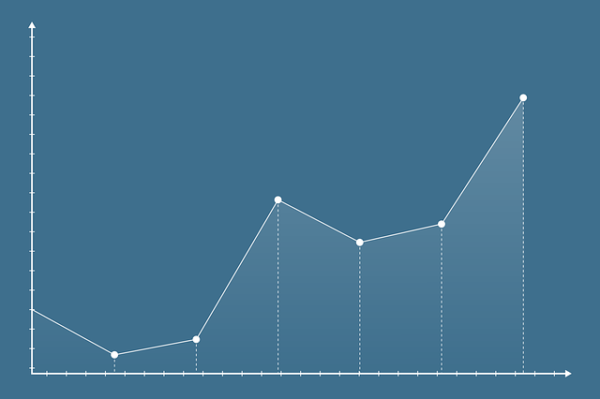Nigeria struggles to contain a worsening currency crisis and increasing food insecurity
Table of Contents

Nigeria is grappling with an unprecedented currency crisis and surging inflation, as highlighted by the International Monetary Fund, which cautioned on Monday that nearly one out of every ten individuals is confronting food insecurity.
In January, inflation soared to an annual rate of 29.9%, primarily propelled by skyrocketing food prices, exacerbating a widespread cost-of-living dilemma in the largest economy on the African continent. Concurrently, the Nigerian naira experienced a significant decline, reaching an unprecedented low of approximately 1,600 against the U.S. dollar by late February.
President Bola Tinubu’s administration assumed office in May 2023, inheriting a deeply fragile economic landscape marked by sluggish growth, escalating inflation, deficient revenue generation, and trade imbalances that had accumulated over numerous years.
In response, his government swiftly initiated a series of economic reforms designed to deregulate the economy, including the elimination of fuel subsidies and the easing of currency controls.
While these measures were positively received by international investors, the immediate consequence has been the exacerbation of various macroeconomic challenges that had previously been mitigated by interventionist policies.
A mission conducted by IMF staff in Nigeria in February highlighted that while economic growth reached 2.8% in 2023, this figure falls slightly short of the level required to sustain the country’s rapid population growth.

The IMF, based in Washington, D.C., stated in its report on the country that improved oil production and anticipated agricultural yields in the latter half of the year are positive indicators for 2024 GDP growth, projected at 3.2%. However, challenges such as high inflation, weakness of the naira, and policy tightening are expected to pose obstacles.
Despite the challenges, the IMF acknowledged Nigeria’s implementation of an “effective and well-targeted social protection system,” as well as government initiatives such as the distribution of grains, seeds, and fertilizers, and the introduction of dry-season farming.
IMF commends government and central bank efforts

Mission staff observed recent improvements in government revenue collection and oil production as “encouraging,” alongside the Central Bank of Nigeria’s decision to raise interest rates by 400 basis points to 22.75% to curb inflation and alleviate pressure on the naira. This move has led to a slight strengthening of the currency in recent days.
David Omojomolo, an Africa economist at Capital Economics, remarked, “The interest rate announcement received a cautious welcome from investors, with the naira gaining some ground against the dollar in the official and parallel markets.” He noted that the unexpected magnitude of the rate hike contributed to the positive reaction, along with the reaffirmation of an inflation-targeting framework.
However, Omojomolo expressed concern about the remarks made by CBN Governor Olayemi Cardoso in the accompanying speech, suggesting that Cardoso appeared apprehensive about government policy.
Omojomolo observed in a note on Friday that CBN Governor Olayemi Cardoso delicately attributed some of the inflation challenges to “non-monetary factors,” including ongoing infrastructure and security issues. Additionally, Cardoso pointed out loose fiscal policy as a contributing factor, suggesting that the government’s decision to reintroduce cash transfers to households may hinder the CBN’s efforts in fighting inflation.
“Although rate hikes may incentivize dollar inflows through foreign investment,” he continued, “Cardoso’s emphasis on perceived foreign exchange speculation, along with the government’s focus, suggests a reluctance to allow the naira to float freely with market dynamics.”
“Failing to resist these interventionist tendencies poses the risk of a resurgence of macroeconomic imbalances, which were central to the recent currency and inflation challenges. This could necessitate maintaining tighter monetary policy for an extended period, potentially at the expense of economic growth.”
Momentum in the private sector is decelerating

Recent data revealed a slowdown in private sector activity in Nigeria during February, as indicated by the drop in the Stanbic IBTC Bank PMI (Purchasing Managers’ Index) from 54.5 in January to 51.0.
A PMI reading above 50 signifies expansion, and Nigeria’s PMIs have stayed in positive territory for the last three months. However, the average for the entire year dipped from 53.9 in 2022 to 50.4 in 2023.
Pieter Scribante, a senior political economist at Oxford Economics Africa, pointed out that high input and output cost inflation was dampening private sector confidence and business operations.
“Disruptions in the non-oil sector, fluctuations in currency values, surging inflation, increased fuel and transportation expenses, and shortages of food are anticipated to persist throughout 2024,” Scribante stated in a research memo issued on Monday.
Oxford Economics forecasts a real GDP growth of 2.8% for 2024, with advancements in the hydrocarbon sector offsetting weaknesses in the non-oil sector.
“This year, the potential for recovering domestic industries, heightened foreign investments, and a reduction in inflation serve as positive factors,” Scribante remarked.
“Conversely, persistent price rigidity, depreciation of the exchange rate, volatility in oil prices, and domestic security concerns present downside risks.”
